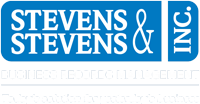Know What’s Required: Records Management and Taxes
 Do you know what records you need to keep for tax purposes? Proper records management can save you a significant amount of time – and trouble – down the road, if you need to access your past tax records. Failing to keep the right records, or not being able to access them when you need them, could result in a significant penalty if audited or facing a lawsuit.
Do you know what records you need to keep for tax purposes? Proper records management can save you a significant amount of time – and trouble – down the road, if you need to access your past tax records. Failing to keep the right records, or not being able to access them when you need them, could result in a significant penalty if audited or facing a lawsuit.
What documents you are required to keep, and for how long, are two of the most important considerations for records management. Consider the following:
- Keep Your Supporting Documents – Receipts related to transactions, whether a purchase or a sale, should be maintained for the same period of your tax statement, typically six years. These documents would be used to substantiate any tax-related issues if there was an audit.
- Financial Statements – These statements will document your assets and liabilities over a specific period of time. This is a great starting point when reviewing your financial activity, and can help make sure you are accurately recording your company’s business, and safely and securely storing the documents necessary to support that.
- Employee Payroll Records – Typically these documents support the number of hours worked by an employee, their gross payroll amount, any deductions they may take, and the employee’s payroll amount for a specific pay period.
- Previous Tax Statements – Businesses should maintain their previous year’s tax forms (up to six years prior), including supporting documents related to any tax payments, or overpayments.
- Security is Vital – The safe, secure storage of all of your tax-related documents is critical. Having immediate access to these records can often reduce the likelihood of errors, or in a worst case scenario, the inability to provide documents in a legal setting. Safe disposal, or shredding of older, sensitive documents also provides important safeguards for your business.
For any business, knowing that you are maintaining your records properly, with secured access, and stored in a controlled environment , either on-site or off, can give you the opportunity to focus on your clients and customers, and ultimately what makes your company succeed.
Photo By 401(k) 2012




